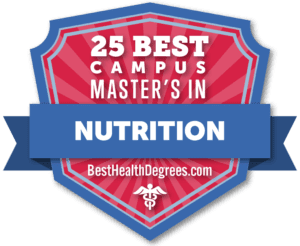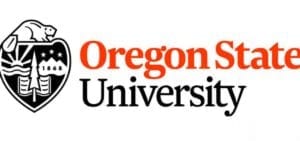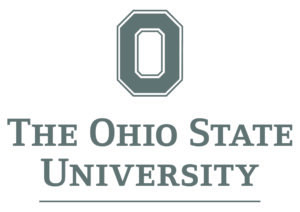
Key Takeaways:
- Utah State University and Oklahoma State University are highlighted as leading institutions for a master’s in nutrition.
- A master’s degree in nutrition enhances job opportunities and potential earnings compared to just having a bachelor’s degree.
- Master’s in nutrition programs offer diverse specializations like food science, dietetics, and community nutrition.
- Many master’s in nutrition programs offer online learning to accommodate working professionals.
The top Nutrition master’s programs prepare nutrition and diet professionals to take the next leap and advance their careers. If you already have a bachelor’s degree in nutrition or another similar field and have the ambition to advance in the field, you may want to look into the best nutrition master’s. The best Nutrition masters programs enhance a person’s knowledge about nutrition to better assist patients or work in research areas.
Although you can find job openings for nutritionists or dietitians with only a bachelor’s, some job opportunities require that a person has a graduate degree in nutrition. Even if it’s not a requirement, it’s often preferred. An employer may choose another candidate who has a graduate degree in nutrition over a person with only an undergraduate education. Graduates of a master of nutrition program have more job opportunities. Additionally, completing one of the nutrition master’s degree programs can enhance a person’s earning potential by several thousand per year.
Our Method: Ranking the Best Nutrition Master’s Program
To rank the best Master’s in Nutrition degrees in America, Best Health Degrees editors researched accredited, trusted programs of all kinds. From our initial pool, we ranked programs according to price, reputation, and salary potential. We use data from Niche, IPEDS, and the National Center for Education Statistics.
1. Utah State University

The Master of Science in Nutrition and Food Science from Utah State University is a good option for your goals. This nutrition program emphasizes the chemical makeup of food as well as the biological aspects of food for optimal nutrition. With a multidisciplinary approach, students admitted to this program learn how food impacts the body, athletic performance, and also the risk of disease. Focusing on the impact of food on different areas of life, helps students clarify the best options for optimal health. Graduates find employment in areas from food technology to policy making.
Utah State University stands apart by giving students a holistic view of food. It ensures that students are aware of differences in traditional foods, the ways that culture may impact food choices and the scientific aspects of diet. Taking a holistic view of diet teaches students how to work with different individuals in their careers and to treat those from differing cultures with respect while also helping guide their nutrition to better choices.
Highlight: Utah State University offers assistantships to students in their master’s degree programs.
Degree: Master of Science in Nutrition and Food Science
Learn more about this nutrition master’s program here!
2. Oklahoma State University

Oklahoma State University’s Master of Science in Nutritional Sciences offers a focus on research as it applies to food and nutrition sciences. It teaches students the skills they need to take on research projects. Graduates work in professional roles to enhance nutrition, improve health, and also address concerns about nutritional deficiencies within demographic populations.
Oklahoma State University offers two concentrations within nutritional studies. Students can choose to study nutrition or focus on dietetics research through the university. It also offers online learning with classes in dietetics. So, students can work at their own pace and also keep up with job responsibilities. Furthermore, the flexibility of the program ensures that students are able to focus on their personal goals for a career.
Highlight: Oklahoma State University offers a dietetic internship program to help students gain relevant experience in nutrition science and dietetics.
Degree: Master of Science (MS) in Nutritional Sciences
Visit the nutrition program here!
3. University of Vermont

The University of Vermont offers a top graduate school in nutrition for students to work in nutrition science. This Master of Science in Nutrition and Food Science focuses on research in human nutrition and also the science of food. So, students are able to learn from professors who research topics that range from food microbiology to online weight loss programs. Students are able to focus on the research aspects of nutrition while building on skills developed in their undergraduate studies.
The University of Vermont takes a scientific approach to nutrition. Students learn basic chemistry, biology, and fundamental sciences that impact human nutrition and health. Additionally, this program offers students the skills to research different aspects of nutrition. So, student degree outcomes include an active leadership role within the food industry.
Highlight: The University of Vermont offers assistantships and fellowships. These programs help master’s level students with the costs of a degree in nutrition.
Degree: Master of Science in Nutrition and Food Science
Learn more about this nutrition master’s program here!
4. University of Illinois at Chicago

The Master of Science in Nutrition from the University of Illinois at Chicago is a nutrition program for graduate students who focus on dietetics and nutrition in public health, research, or also nutrition education. Furthermore, the degree emphasizes the relationship between nutrition and human health as a critical part of the core curriculum. It also uses human nutrition evidence to teach students about the sciences involved in nutrition studies. So, they are ready for the challenges of working in the modern science of food roles.
The University of Illinois at Chicago offers two different paths for students in the master’s degree program. Students can take the traditional program for working dietitians and nutritionists who may want to improve their knowledge and skills. It also offers a coordinated program for students who want to change to a new career in nutrition. This program gives fundamental training as well as more advanced training.
Highlight: The University of Illinois at Chicago uses a teaching garden to bring food into the classroom. This program ensures students understand different aspects of nutritional studies.
Degree: Master of Science in Nutrition
Learn more about this nutrition master’s program here!
5. University of Missouri

The University of Missouri offers a nutritional science program that emphasizes nutrition in metabolic functions and food research. This top nutrition master’s degree prepares students to take on advanced roles in a science position or research project. It also teaches students the science behind nutrition. Therefore, they are able to work in clinical settings and take on specific roles within the nutrition and dietetic industries.
The University of Missouri stands apart from other programs with its focus on providing a variety of useful skills. It teaches students at the graduate level the grant-writing skills they may need to start or continue a research master’s project. Additionally, students learn the proper methods to prepare a presentation. Students are able to use their skills in different roles within the nutrition science industry. So, it prepares students and graduates to advance in their careers.
Highlight: The University of Missouri requires students to complete a master’s thesis based on their own research.
Degree: Master of Science (MS) in Nutritional Sciences
Learn more about this nutrition master’s program here!
6. Purdue University

The interdepartmental Master of Science in Nutrition from Purdue University prepares students to advance in their careers. This top nutrition master’s degree program teaches the fundamental skills students need to work in nutrition-related fields. Or, students advanced in their current positions. This interdisciplinary program has high standards for the degree requirements. However, graduates have the skills to work on nutrition science research projects on current and relevant subjects in nutrition. Furthermore, students choose one of four areas of emphasis in their master of science degree. The choices are Biochemical and Molecular Nutrition, Animal Health, Human and Clinical Nutrition, Public Health and Education, or Growth and Development.
Purdue University differs from other programs by setting high standards for student achievement. Students must maintain a 3.0 cumulative GPA or higher to get into the program and stay in the graduate program. This emphasis on high achievement ensures that students are prepared to work in challenging roles. Graduates take leadership positions or advance in their current careers.
Highlight: Purdue University offers fellowship workshops. They teach students the skills they need to obtain a fellowship to assist with the costs of a degree. The Interdepartmental Nutrition Program at Purdue also offers training.
Degree: Master of Science in Nutrition
Learn more about this nutrition master’s program here!
7. University of Minnesota

The University of Minnesota offers a Master of Science in Nutrition that takes an interdisciplinary approach to student education. It provides a strong foundation in skills and topics that apply to multiple areas of study. That emphasis is on bringing in faculty members from other areas of study for a comprehensive view. They learn the different ways nutrition and diet may impact the body, human nutrition health, and also human behavior. Students the science behind nutrition and diet so they can work in clinical fields, and also food processing or science positions. The core curriculum in this program is four courses. They include Nutritional Physiology, Nutritional Biochemistry, Vitamin and Mineral Biochemistry, and also Nutrition and Genetics.
The University of Minnesota stands apart by bringing different topics and studies into nutrition studies. Furthermore, students complete a strong foundation in nutrition studies to ensure that they are ready to work. Students can expect to learn about pediatrics, psychiatry, and also epidemiology. These topics are part of the nutrition studies so they understand how nutrition impacts different demographic groups, mental health, physical health, and other related topics.
Highlight: The University of Minnesota offers a dietetic internship to students who want to gain experience in dietetics and nutrition.
Degree: Master of Science in Nutrition
Learn more about this nutrition master’s program here!
8. San Diego State University

The MS in Nutritional Science from San Diego State University is one of the best options for students to study nutrition and gain research experience. This degree program emphasizes research using human subjects or experimental animals. Therefore, students have a strong foundation in the methods used in research studies. They also learn the details that are essential for studies within nutrition and dietetics. It evaluates the ways that diet may impact health and well-being, as well as differences among population groups.
San Diego State University focuses on teaching students critical thinking skills so they can work in a clinical or research setting. It ensures that students are aware of the studies and literature that apply to nutrition science. Additionally, they learn methods of evaluating new research that may become available. It also teaches students relevant skills as it applies to actively working with human subjects during experimental nutrition research.
Highlight: San Diego State University offers several scholarships to students who are studying nutrition.
Degree: Master of Science in Nutritional Science
Learn more about this nutrition master’s program here!
9. Saint Louis University

Saint Louis University offers a Master of Science in Nutrition and Dietetics that emphasizes compassion and competence. The program allows students to focus on four different concentrations: medical nutrition, culinary entrepreneurship, nutrition and physical performance, and a dual degree in nutrition and public health. The ability to choose a specialized area of nutrition prepares students to work on specific skills that apply to their long-term career goals. It also gives students a chance to learn more about different options for their careers when they gain specialized education.
Saint Louis University emphasizes self-directed learning at the master’s level. It encourages student curiosity and allows students to look into aspects of nutrition that fit their personal interests. The emphasis on developing individual competence as well as the teamwork skills students need to collaborate with others prepares students for a challenging career in the nutrition and dietetics industry.
Highlight: Saint Louis University offers internships to students as a method of providing opportunities to gain experience and to develop specific skills for a career.
Degree: Master of Science in Nutrition and Dietetics
Learn more about this nutrition master’s program here!
10. University of Michigan, Ann Arbor

The Master of Science in Nutritional Sciences from the University of Michigan at Ann Arbor prepares students for a rigorous career in the food sciences industry. The degree program emphasizes nutrition science as it applies to health. The program also prepares students for the challenges of identifying nutrition-related health concerns. Furthermore, it gives students a strong foundation in science to ensure that students are able to understand and contribute to nutrition research.
The University of Michigan at Ann Arbor stands out by emphasizing epidemiology and public health as it relates to nutrition. It gives students an opportunity to understand the way nutrition is handled within different demographic groups, as well as methods used to improve health among populations. It also teaches students how to identify health risks that may apply to large populations.
Highlight: The University of Michigan at Ann Arbor offers a variety of scholarships to help students with the costs of obtaining a degree.
Degree: Master of Science in Nutritional Sciences
Learn more about this nutrition master’s program here!
11. Oregon State University

Oregon State University offers a Master of Science in Nutrition that gives students a strong foundation in research and coursework. It teaches students the basic skills they need to work in nutrition-related fields. It also emphasizes the value of research as it applies to nutrition. That strong foundation helps students gain the ability to handle challenges within different careers and also dietetic programs.
Oregon State University differs from other programs by emphasizing the science behind nutrition. Students are expected to have proficiency in biochemistry and physiology as well as human health and nutrition. The emphasis on science ensures that students are able to handle the challenges they may face when working in a research position or evaluating new studies in human nutrition.
Highlight: Oregon State University offers an accredited dietetics internship to students in the master’s program for nutrition.
Degree: Master of Science in Nutrition
Learn more about this nutrition master’s program here!
12. San Jose State University

San Jose State University offers one of the best Master of Science in Nutritional Science programs for students who want to advance in their careers. The degree program teaches students to analyze nutritional research. It also teaches cultural sensitivity as it applies to nutrition and nutrition packaging to ensure that students are able to keep up with work in large corporations or specialized fields.
San Jose State University recognizes the value of effective communication. That is why the master’s degree in nutritional science emphasizes written and oral communication skills. Students are expected to learn different methods of professional communication as well as the proper measures to maintain compassion when working with different demographic groups. Additionally, the San Jose State University dietetic internship offers work experience.
Highlight: San Jose State University offers research resources to help students with research projects within nutrition studies as well as to measure different aspects of health when working with human subjects.
Degree: Master of Science in Nutritional Science
Learn more about this nutrition master’s program here!
13. Case Western Reserve University

Case Western Reserve University offers one of the best Master of Science in Nutritional Science programs for students who want to develop specialized skills. The school offers a concentration in nutrition, public health nutrition, and biomedical investigation in nutrition. Students can also take a dual degree in nutrition and public health. That ability to select from different concentrations gives students the chance to focus on specific areas of nutrition studies.
Case Western Reserve University emphasizes competence among students. It prepares students for leadership roles and ensures that students are aware of the challenges that may arise within the nutrition field. It also gives students a strong foundation in nutrition research and nutrition as it applies to population groups, so it helps students focus on their career goals.
Highlight: Case Western Reserve University has a combined dietetic internship program that works directly with the master’s degree to give students practical skills related to dietetics.
Degree: Master of Science in Nutrition
Learn more about this nutrition master’s program here!
14. University of Texas Medical Branch at Galveston

The University of Texas Medical Branch at Galveston nutrition program is a great option for students who want to work in clinical nutrition or related fields. Students pursuing this professional science Master of Nutrition and Metabolism learn leadership and management skills, as well as practical skills related to nutrition and dietetics. It ensures that students are ready to handle the challenges of working in a fast-paced environment and have the ability to keep up with modern research into nutrition and health.
The University of Texas Medical Branch at Galveston stands apart from other programs by emphasizing the medical aspects of nutrition and diet. It recognizes that nutrition plays a role in the way the metabolism reacts to different situations and provides students with the underlying skills they need to work on long-term goals as a professionals in dietetics or related fields. It gives students a strong foundation in nutrition studies to ensure that they are ready to work with patients or to take on clinical roles.
Highlight: The University of Texas Medical Branch at Galveston is accredited by the Accreditation Council for Education in Nutrition and Dietetics.
Degree: Master of Science in Nutrition and Metabolism
Learn more about this nutrition master’s program here!
15. University of Nevada, Reno

The University of Nevada at Reno offers an MS in Nutrition that helps students develop useful skills for their career goals. It is one of the best nutrition master’s programs for students who want a holistic education and plan to study topics related to nutrition and health. The degree program emphasizes the use of different skills and studies to ensure that students understand the way nutrition and diet may impact mental health, physical health, and demographic groups in differing ways.
The way that the University of Nevada at Reno stands out is the focus on developing hands-on experience. Students are expected to spend time in labs working on research projects that take an interdisciplinary approach to education in nutrition. That focus on ensuring that students are working on research projects and gaining experience in the nutrition field ensures that students are prepared for the challenges they may face when working in a fast-paced environment or taking on a leadership position.
Highlight: The University of Nevada at Reno offers teaching and research assistantship programs for students in the graduate program. One example is the University of Nevada Reno dietetic internship.
Degree: MS in Nutrition
Learn more about this nutrition master’s program here!
16. Oregon Health & Science University

The Master’s of Science in Human Nutrition from Oregon Health and Science University is one of the best programs for students interested in the health-related aspects of nutrition studies. This degree program emphasizes the science of nutrition and requires students to learn physiology, biostatistics, and related topics to prepare for work as a dietitian or nutritionist. OHSU’s degree program prepares students to take licensing exams as dietitians and offers opportunities to work with medical professionals.
Oregon Health and Science University focuses on the application of nutrition to human health and well-being. That focus on using nutrition in medicine plays a critical role in the potential career options for students. It helps students advance in the medical field or to work with doctors to improve patient health in medical facilities. It also gives students a strong foundation in identifying the potential problems in health professions that may arise when working on patient health.
Highlight: Oregon Health and Science University is accredited by the ACEND, so it meets the high standards of the accreditation council.
Degree: MS in Human Nutrition
Learn more about this nutrition master’s program here!
17. Howard University

Howard University offers a Master’s of Science in Nutritional Sciences that prepares students to work in a variety of positions and industries. It gives students a strong foundation in nutrition research, human and clinical nutrition, and dietetics. So, students can work in many different areas of nutrition. This program also focuses on teaching students how to maintain competence as a nutritionist while also offering compassionate care in a diverse work environment. Students learn to consider differences in the cultural background of individuals to provide effective solutions for patient health.
Howard University recognizes the relationship between food and disease prevention. As a result, the nutrition science program emphasizes the impact of food and nutrition on different areas of health. That focus on nutritional science as it applies to human health and research into nutrition for human health gives students a strong foundation in science as well as dietetics. It prepares students to evaluate new studies and information that they can then apply in their careers.
Highlight: Howard University offers graduate assistantship programs for students who want to help cut the costs of education while working on a degree program.
Degree: MS in Nutritional Sciences
Learn more about this nutrition master’s program here!
18. University of Washington

The University of Washington offers a master’s in nutrition program for students who want to advance in their careers as dietitians or nutritionists. The MS in Nutritional Sciences takes an interdisciplinary approach to education and requires students to learn about epidemiology, biostatistics, and related sciences as it applies to nutritional studies and research. Students are able to evaluate new research and information when working as a nutritionists or dietitians. To be a Registered Dietician graduates must complete the Academy of Nutrition and Dietetics accredited Graduate Coordinated Program in Dietetics.
A key way the University of Washington differs from other programs is the focus on applying public health to the field and study of nutrition. Students completing this program also learn about the impact of nutrition on different demographic groups and how cultures may impact traditional nutrition. It also encourages students to recognize the way that nutrition may influence the health of the public and how misinformation may contribute to negative health outcomes.
Highlight: The University of Washington requires students to complete a capstone project and a thesis before graduating from the master’s program. Students can waive some core classes if they complete the Didactic Program in Dietetics.
Degree: Master of Science in Nutritional Sciences
Learn more about this nutrition master’s program here!
19. Pace University

The MS in Nutrition and Dietetics from Pace University prepares students for the rigors of working as a nutritionist and a dietitian, as well as the licensing process to become a registered dietitian. By giving students a strong foundation in nutrition science and research, students are able to focus on learning relevant skills for their long-term career goals. It also prepares students to qualify for examinations that may advance a student’s career opportunities.
Pace University stands apart by emphasizing different aspects of nutritional science. It gives students an opportunity to evaluate their career options by teaching students leadership skills, entrepreneurship, public health, and other topics as they relate to nutrition and food. The holistic methods of applying skills to different fields and industries ensure that students are ready to handle the challenges that may arise when they are working on long-term goals.
Highlight: Pace University offers an internship program to prepare students to meet the requirements for work experience. It also qualifies students to obtain a registered dietitian license or registered dietitian nutrition credential.
Degree: Master of Science in Nutrition and Dietetics
Learn more about this nutrition master’s program here!
20. Florida International University

The MS in Dietetics and Nutrition from Florida International University is one of the best programs for students who want to work in nutrition or dietetics. The degree program gives students a strong foundation in nutrition studies and ensures that students are prepared to take on advanced roles when working in a clinical or research setting. It gives students the opportunity to work on long-term goals.
Florida International University stands apart from other options by setting high standards for students who enter the master’s program. A student must have a 3.0 GPA or higher at the undergraduate level to qualify for admissions and must meet the prerequisite standards for education. That ensures that students have a strong foundation in nutrition and dietetics before they start working on their degrees.
Highlight: Florida International University works with affiliated research centers and has a laboratory to help students gain hands-on experience.
Degree: Master of Science in Dietetics and Nutrition
Learn more about this nutrition master’s program here!
21. University of Hawai’i at Manoa

The University of Hawai’i at Manoa offers an MS in Nutritional Sciences that prepares students for the rigors of working in a fast-paced environment. The degree program emphasizes the relationship between food and health as well as food and fitness. It gives students a strong foundation in research and nutrition sciences that ensures that students are fully aware of how food may impact the human body.
The way the University of Hawai’i-Manoa stands apart is the emphasis on science as it relates to the human body and nutrition. It gives students a well-rounded view of the different aspects of nutrition, including minerals and toxicology, so that students are able to provide assistance to patients in a clinical setting or focus on research for improved information.
Highlight: The University of Hawai’i-Manoa offers financial assistance to help students in the master’s program with the cost of a degree.
Degree: Master of Science in Nutritional Sciences
Learn more about this nutrition master’s program here!
22. Loma Linda University

Loma Linda University offers an online master of science in nutrition. This MS in Nutrition and Dietetics emphasizes nutrition as it applies to the Seventh-Day Adventist institutions, as well as modern sciences. The degree program emphasizes a diet plan and nutritional studies that evaluate the standards set by the Seventh-Day Adventists due to the longevity of the group and the low rates of disease among those who follow the diet plan and other health strategies set forth by the group. The program uses research on the group to form ideals for nutrition as it applies to good health.
Loma Linda University takes a Christian approach to the study of nutrition. It recognizes the role of modern science and research in nutrition. But it also recognizes that there are aspects of health that are not necessarily tied directly to food and nutrition. It ensures that students recognize the holistic aspects of good health through programs like the Loma Linda dietetic internship. All classes provide a strong foundation based on long-term studies into the Seventh-Day Adventists and their diet plans.
Highlight: Loma Linda University is accredited by the ACEND, so it does meet the educational standards set by the council.
Degree: Master of Science in Nutrition and Dietetics
Learn more about this nutrition master’s program here!
23. Ohio State University

The MS in Human Nutrition from Ohio State University is one of the best programs for nutrition research. This program emphasizes nutritional research and focuses on investigating the root causes of health conditions in modern environments. It recognizes that nutrition and food impact long-term health outcomes. So, students learn to identify the causes of negative outcomes in relation to the diet of individuals or groups. This 30-credit program includes five core courses, 3 research classes, 10 credit hours of other elective courses, and also a thesis.
OSU stands out by evaluating the science behind good nutrition. But also with the study of food insecurity and how culture may influence outcomes. It recognizes that good nutrition may not apply to all groups and emphasizes measures to help improve nutrition in areas with food insecurity by researching different options.
Highlight: Ohio State University has a high rate of diversity that brings different perspectives into the classroom environment.
Degree: Master of Science in Human Nutrition
24. Drexel University

The online MS in Human Nutrition from Drexel University prepares students to be registered dietitians. Students develop the appropriate skills to obtain a license. It also ensures that students are ready to work in a variety of different environments. Graduates find employment in public and private clinical settings and in applied clinical nutrition.
Drexel University focuses on teaching students about the social aspects of nutrition. However, the program also teaches the science that may impact nutritional views over time. Additionally, the program gives students a strong foundation in nutritional studies and prepares them for a rigorous career.
Highlight: Drexel University is ACEND accredited and one of the top nutrition graduate programs.
Degree: Master of Science in Human Nutrition
Learn more about this nutrition master’s program here!
25. Florida State University
Florida State University offers an MS in Nutrition and Food Science with a focus on the research aspects of nutrition. Students gain a strong foundation in the sciences behind nutrition studies. It emphasizes the scientific method and nutrition research to help students prepare for different roles in the medical, public, or also private sectors.
Florida State University allows students to specialize in two areas of nutrition science. Students can specialize in food or also nutrition science. Therefore, students learn about specific areas of nutrition applied to human health outcomes.
Highlight: Florida State University offers a dietetic internship so students gain relevant experience in dietetic work.
Degree: Master of Science in Nutrition and Food Science
Learn more about this nutrition master’s program here!
What Does a Nutritionist Do?
Nutritionists work with individuals and groups to develop plans for better nutrition. They often include eating plans and sometimes other goals. Many nutritionists and dieticians work in medical facilities like hospitals, nursing homes, or private care clinics. Medical nutrition therapy is often part of a treatment plan. Nutritionists and dietitians help individuals make healthy eating choices to improve their health and overall well-being.
Positions in the field of nutrition are also available in the public and private sectors for nutritionists who focus on research. Biochemical and molecular nutrition research is prevalent in the food industry, nutritional sciences, biochemistry research, and the pharmaceutical industry. Research positions require an in-depth understanding of nutritional biochemistry and molecular nutrition.
Community nutrition is another area where nutritionists work. Professionals work in communities to teach healthy eating habits for disease prevention. Some focus on global food systems and food security.
What do You Study in a Nutrition Master’s Program?
Required coursework in a nutrition program usually contains core courses in nutrition, health sciences, general chemistry, growth and development, research methods, and nutrition and genetics. In addition to core courses, other components can include classes in an area of focus or specialization, practicum experiences, research experience, a thesis option or non-thesis option, and an internship. The program format can be on-campus, online, or hybrid. Additionally, students can choose to attend full-time or part-time.
Some of the course examples, classes most students take, and additional topics include:
- agricultural economics
- food science and food safety
- nutrition science
- life cycle and life span
- sports nutrition
- Biostatistics, Nutrition, and Genetics
- biochemistry physiology
- nutrition education
- bioactive compounds
- Nutritional Epidemiology
- medical nutrition therapy
- molecular nutrition human and clinical nutrition
- medical nutrition therapy
- molecular and biochemical nutrition
- community nutrition
- nutrition therapy and disease prevention
- food safety and toxicology
- holistic and functional nutrition
- international nutrition
- consumer acceptance
- public health nutrition
How Do You Choose Graduate School for Nutrition?
Unfortunately, not all nutrition graduate schools are the same. So prospective students should consider if they want to complete a nutritional science degree online or on campus. Students looking for more flexibility should consider an online program for a Master of Science in Nutrition. An individual should then look at the websites for each one of the best schools for masters in nutrition.
Compare each school based on the curriculum they use, their reputation for preparing students for a career, as well as their history. Do you have particular interests? Are there any prerequisite courses you need? Some schools require students to submit GRE scores, but some do not require GRE test scores. Price and reviews from previous students should be part of the selection process for graduate schools for nutrition. Does the school offer research opportunities? Additionally, when comparing the best schools for masters in nutrition, it’s important to look for their accreditation.
Other Programs
Other universities not on our list offer excellent traditional and online master’s programs with unique features. For example, Tufts University has a program in Nutrition Communication. In the North Carolina State University at Raleigh program, students can add a Professional Science Master’s designation. The University of Illinois at Urbana Champaign has a notable program through its Department of Food Science and Human Nutrition. The University of Connecticut has an excellent Department of Nutritional Sciences. There are also graduate degrees at Rutgers University and Cornell University.
Accreditation for a Nutrition Program
Unfortunately, not every school out there that offers nutrition programs provides the same level of education. In fact, some schools don’t have the proper accreditation. Without accreditation, graduates can’t sit for the written examination to become a dietitian or nutritionist. So make sure your degree is from an accredited institution.
The Accreditation Council for Education in Nutrition and Dietetics ( ACEND) is the most respected and well-known accrediting organization in this field. The ACEND accreditation is required to sit for the exam to become a dietitian or nutritionist.
What are the Different Degrees in Nutrition?
There are nutrition certificates, associate degrees, bachelor’s degrees, and also a doctorate in nutrition. However, to be a licensed nutritionist individuals need a master’s degree in nutrition. Many states require a license and each state has different licensing requirements.
Nutrition graduate programs train students to work as registered dietitians or licensed nutritionists. Some work in health education, applied nutrition, behavioral nutrition, or food safety. Graduate education for students with research interests includes advanced nutrition, molecular and biochemical nutrition, organic chemistry, molecular nutrition, and cell biology.
What Can You Do with a Master’s in Nutrition?
With a master’s in nutrition, graduates can take on leadership roles or positions not available with a bachelor’s degree alone. For example, they can become a registered dietician. Sometimes, a person remains with their current employer in the same job but makes more money. Some nutritionist roles, career paths, and specializations are listed below.
Clinical Nutritionist
This is a dietitian or nutritionist who works in medical and long-term care facilities. They evaluate a patient’s dietary intake and nutritional needs. Then consult with a health care team on nutritional management for a client. The team creates a clinical nutrition treatment plan for a client or patient.
Management Nutritionists
The nutrition plan meals for individuals that meet all their dietary needs. Many provide nutrition services for an aging population in medical facilities, nursing homes, and other healthcare settings.
Public Health Nutritionist
Community and federal government organizations employ nutritionists as public health educators. They often work in community health settings and work to address nutrition issues in the general public. Or, community nutritionists work to raise awareness for topics like cancer prevention or other chronic disease. Some promote health with school nutrition initiatives or work on international nutrition programs.
Nutritional Consultant
A consultant works in private practice providing nutritional advice and information to others through nutrition counseling. Some work with eating disorders or in family and consumer sciences. They also give educational seminars and work with corporations.
Sports Nutritionist
Sports nutritionists work with clients as wellness coaches. They assist clients with a healthy diet and fitness nutrition. Many work in gyms, and fitness centers, or are part of a sports medicine clinic. These nutrition experts need an understanding of body composition, exercise science, sports nutrition, and human performance.
Animal Nutritionists
They study animal health, and animal nutrition, and research the dietary needs of animals. Many work with veterinarians or zoos. Pet food companies also employ animal nutritionists. Large-scale feed science for agricultural animal science is another area of employment.
Natural Foods Nutritionist
These professionals practice holistic nutrition and functional medicine. They study functional nutrition, food sensitivities, and food science-based natural medicine. They examine nutrition education, nutritional physiology, and how nutrition affects whole-body health.
What is the Job Outlook for Nutritionists?
The Bureau of Labor Statistics projects the employment of dietitians and nutritionists will grow 11 percent from 2020 to 2030. Each year in this period there will be 5,900 new job openings. This is faster than the national average for all jobs and indicates this career is in demand.
How Much Can You Make as a Nutritionist?
The May 2021 BLS information reports dietitians and nutritionists earn a median annual salary of $61,650. Furthermore, the range of pay is from $42,530 to $93,640. Salaries and pay vary by geographical region, experience, and education. For example, individuals with advanced degrees can earn a higher salary.
Related:
- Best Online Master’s in Nutrition Programs
- Fastest Online Master’s in Nutrition Programs
- Most Affordable Online Master Degrees in Nutrition
- Fastest Online Master Degrees in Counseling
- Best Online Masters in Counseling Programs
- Fastest Online Master’s in Psychology Programs
- Best Online Master’s in Psychology Programs
- Kinesiology and Exercise Science Salary with an Associate Degree
- What Can You Do with a Degree in Nutrition?
